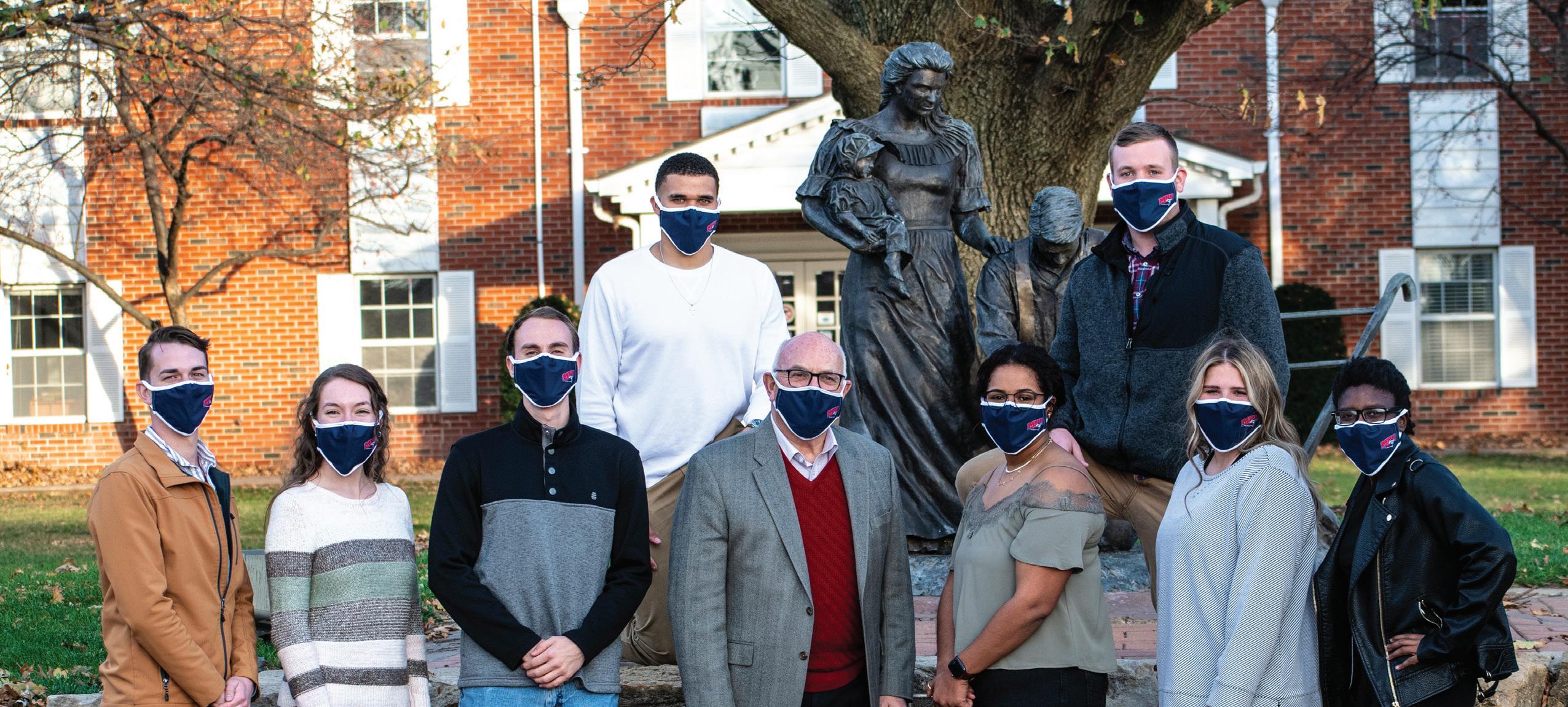In this together! Students gather at the Harvest Prayer Sculpture with MNU President Dr. David Spittal.
Resilience at MNU: College During COVID-19 By Carol (Knight ’81, MA ’08) Best
Almost before we knew it, COVID turned our lives upside down. It was a jolting shift that most expected would last only a few weeks. But months later, MNU is operating in an entirely new way to make on-campus, in-person education possible. Why was it vital to reopen the campus? Students wanted to be back in person. Not only at MNU but across the country. An article from American Enterprise Institute by Kelly and Columbus (July 7, 2020) stated, “most students still strongly prefer face-to-face instruction.” In fact, a Niche. com survey of 16,000 students this summer confirmed that nearly 80% prefer taking classes in person. But keeping living and learning on campus relatively safe during the pandemic is a daunting task involving every department and office.
ACCOMMODATIONS DURING COVID MNU’s Emergency Response Team, a group of campus leaders, many trained in Multi-Hazard Incident for Higher Education, went into high gear when COVID hit our country. The team meets weekly to oversee protocol and planning for the university’s COVID-19 response.
THE PIVOT Extending the 2020 spring break provided time for faculty to adapt their courses to online delivery. Most students went home to complete the semester, with
4
ACCENT MAGAZINE - FALL 2020
fewer than 25 students remaining on campus due to jobs and other issues. Employees whose responsibilities allowed, transitioned to work from home until June 29 when MNU workers began returning to campus. Faculty reimagined their courses in case the fall 2020 semester needed to be online. Various scenarios were considered throughout the planning process since, like the whole country, MNU leaders could not predict what conditions would be like in August. Thankfully, lower positive COVID numbers in the area allowed the university to start classes in person.
PROTOCOL CampusClear is an application MNU requires for anyone, including visitors, who come on campus for more than 10 minutes. The app logs one’s symptoms of COVID-19, if any, and provides guidance or a “Good To Go” message if cleared to be on campus. Face coverings and social distancing are required everywhere on campus. Frequent disinfecting is done at regular intervals during the day. Electrostatic cleaning devices are in use to disinfect high touchpoint/high traffic areas. Hand sanitizer and cleansing wipes are throughout buildings. Water fountains are for bottle filling only. Livestreams and online meetings are used when possible. Even Chapel and athletic events have moved to livestream to mitigate the gathering of large groups.



